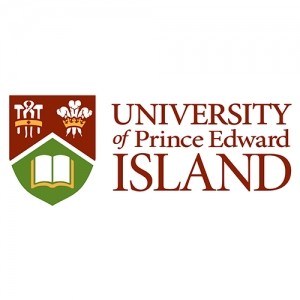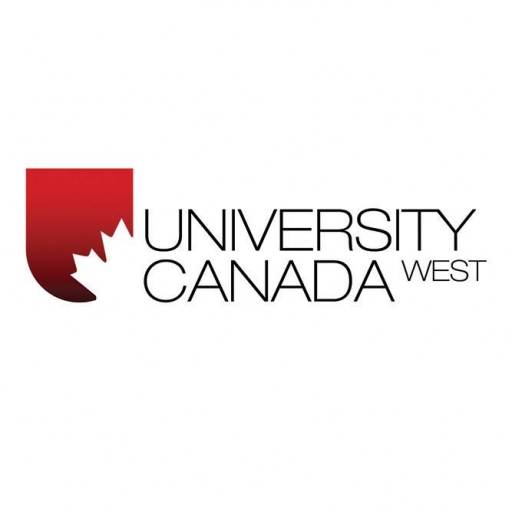Foods and nutrition describes the science of nutrients in food and their actions within the body. Students in the Foods and Nutrition program study the role of foods and nutrients in both health promotion and disease treatment as well as the psychological and cultural factors that influence our food choices. The Foods and Nutrition program at UPEI is accredited by the Dietitians of Canada; our accreditation is evidence of the high quality program offered at UPEI.
Field of study: Foods, Nutrition, and Wellness Studies, General
The Bachelor of Science in Foods and Nutrition at the University of Prince Edward Island is a comprehensive undergraduate program designed to prepare students for diverse careers in the food and nutrition industry, healthcare, research, and community health. This program offers students a robust foundation in the biological, chemical, and social sciences relevant to food and nutritional sciences, emphasizing both theoretical knowledge and practical skills. Throughout the program, students will explore subjects such as human nutrition, food systems management, community nutrition, food safety, and dietetics. The curriculum is carefully structured to include classroom learning, laboratory work, and experiential learning opportunities, ensuring graduates are well-equipped to address real-world challenges in food health and safety.
Students will also have opportunities to participate in research projects, internships, and cooperative education placements, which provide valuable hands-on experience and networking opportunities within the industry. The program encourages an interdisciplinary approach, integrating knowledge from biology, chemistry, psychology, and social sciences to enhance understanding of nutrition’s role in health and disease prevention. Graduates of this program will be prepared for various roles including nutrition educators, dietetic assistants, food safety specialists, community health workers, and roles in private industry or government agencies. Some graduates may pursue further education or professional certification in dietetics or related fields.
The university's facilities and resources support student learning, including modern laboratories and access to research centers specializing in food science and nutrition. The faculty comprises experienced professionals and researchers dedicated to mentoring students and advancing knowledge in the field. With a curriculum aligned to current industry standards and public health demands, the Foods and Nutrition program at UPEI is tailored to meet the needs of students passionate about improving health through food and nutrition. Graduates leave the program with a comprehensive understanding of key principles, practical experience, and a commitment to advancing health and well-being in diverse populations.
Program Requirements for Bachelor of Science in Foods and Nutrition at the University of Prince Edward Island include a combination of core courses, electives, and practical experiences designed to ensure students develop comprehensive knowledge and skills in the field. Prospective students are usually expected to complete foundational courses in biology, chemistry, and psychology during their first year, establishing a solid scientific background necessary for advanced studies. In the subsequent years, students undertake specialized courses such as human nutrition, food safety, food science, community nutrition, dietetics, and food service management. Laboratory components are integral to the program, providing hands-on experience in food analysis, nutrition assessment, and laboratory techniques. Students are also required to engage in research projects or internships, which offer practical exposure to nutrition practices in real-world settings, such as hospitals, community health organizations, and food industries. Electives may include topics like global nutrition issues, food regulation, or culinary arts, enabling students to tailor their education according to personal interests or career goals. The program emphasizes professional development and ethical considerations in foods and nutrition, preparing students for careers in healthcare, research, food industry management, or further study in graduate programs. To graduate, students must attain a minimum GPA as specified by the university, complete all required coursework, and fulfill any practicum or internship obligations. Additionally, students are encouraged to participate in seminars, workshops, or conferences offered by the university or external organizations to enhance their learning and professional network. Overall, the program aims to produce well-rounded graduates with a thorough understanding of the science of foods and nutrition, capable of contributing meaningfully to public health, food safety, and wellness initiatives within the community and beyond.
The Foods and Nutrition program at the University of Prince Edward Island offers various financing options to support students throughout their studies. Tuition fees for undergraduate programs are determined annually and can vary depending on residency status. Domestic students typically benefit from lower tuition rates compared to international students. The university provides detailed fee information on its official website, enabling prospective students to plan their finances accordingly. In addition to tuition, students should consider expenses such as textbooks, laboratory supplies, and personal living costs.
UPEI offers several scholarships and bursaries specifically for students enrolled in health-related programs, including Foods and Nutrition. These financial awards are based on academic achievement, financial need, or a combination of both. Applicants are encouraged to submit their scholarship applications early and to meet all specified eligibility criteria. The university also has external scholarship opportunities that students can apply for, including government grants and private sector awards.
Work-Study programs are available for eligible students, providing part-time employment opportunities on campus to help offset educational expenses. International students may also access some financial aid options, but they should verify eligibility requirements. Loan programs, such as the Canada Student Loans Program, are accessible to eligible students to provide additional financial support during their studies.
Students are advised to complete the Free Application for Federal Student Aid (FAFSA) if applicable, and to consult with the university’s financial aid office for personalized guidance. The university’s financial aid team offers counseling to help students identify the most suitable funding sources and assist in scholarship applications. Furthermore, some students may explore external funding sources like community foundations or industry-specific grants related to foods and nutrition fields.
Overall, financing studies at UPEI involves a combination of tuition payment, scholarships, bursaries, work opportunities, and loans, designed to make higher education accessible and affordable for students pursuing a degree in Foods and Nutrition.
The Bachelor of Science in Foods and Nutrition at the University of Prince Edward Island is designed to provide students with a comprehensive understanding of the science of food, nutrition, and health. The program emphasizes the importance of a balanced diet and the role of nutrients in human health, equipping students with the knowledge necessary to promote wellness through proper nutrition practices. Throughout the curriculum, students explore various aspects of food science, including food safety, food composition, and food technology, alongside the fundamentals of human physiology and biochemistry relevant to nutrition. This integrated approach prepares graduates for diverse careers in dietetics, food industry, research, and health promotion.
Students in the program benefit from hands-on learning experiences in laboratories and practical settings, allowing them to develop skills in food analysis, nutritional assessment, and dietary planning. The program also offers opportunities for internships and cooperative education placements, providing real-world exposure and networking possibilities within the food and nutrition sector. Additionally, coursework covers public health issues related to nutrition, community health initiatives, and the importance of culturally appropriate dietary practices. The program aims to cultivate critical thinking, scientific inquiry, and effective communication skills, enabling graduates to contribute meaningfully to public health policies, nutritional counseling, or further research in the field.
featuring qualified faculty members who are experts in their respective fields, students receive mentorship and insights into the latest developments in food and nutrition sciences. The university's commitment to research is reflected in various projects that focus on sustainable food systems, food security, and the promotion of health through dietary interventions. Graduates of the Foods and Nutrition program at UPEI are well-equipped to pursue careers as registered dietitians, nutrition consultants, food safety officers, or continue with graduate studies. The program also prepares students for certification and licensure processes required in certain health professions. Overall, the university provides a supportive learning environment with modern facilities and resources aligned with industry standards, ensuring students graduate with the knowledge and skills needed to make a positive impact on individual and community health through proper nutrition.



